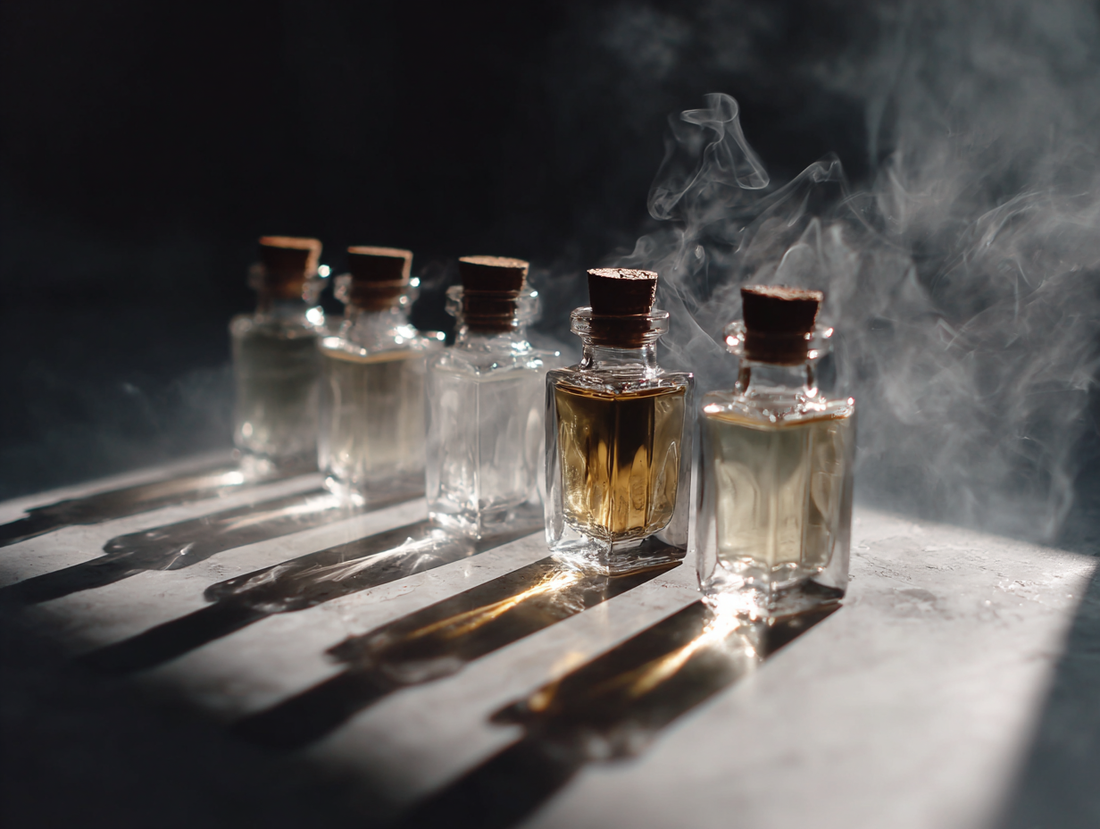
What Is Sillage in Perfume?
How far your scent travels—and the art of a fragrant echo.
There are those who announce themselves with footsteps, others with laughter. But the most mysterious among us leave only scent in their wake.
If you’ve ever caught a trace of someone’s perfume on the air—long after they’ve passed—you’ve encountered sillage (pronounced see-yazh). It is the fragrance trail we leave behind, the ghost of presence in a room now empty. A scented afterimage. A vanishing signature.
The Meaning of Sillage
From the French for “wake,” sillage is borrowed from maritime language—the turbulence trailing a ship through still water. In perfumery, it is no less poetic: an aromatic wake stirred not by oars or engine, but by the heat of skin, the pull of gravity, and the stirring of molecules through space.
Where projection is the scent radius that surrounds a still body—your perfume’s immediate aura—sillage is the memory it leaves behind. Projection speaks in the present tense. Sillage speaks in past.
Sillage vs. Projection: The Fragrant Parallax
| Term | What It Measures | Example |
|---|---|---|
| Projection | The scent bubble around you | Someone standing nearby can smell your perfume while you’re still |
| Sillage | The trail left behind as you move | Someone enters a hallway minutes after you’ve passed and still smells you there |
What Influences Sillage?
- Perfume concentration: Eau de Parfum and Extrait generally linger longer and trail farther than lighter formulas.
- Raw materials: Heavier ingredients—musk, oud, resins—create stronger trails.
- Fixatives: Ambrette seed, benzoin, and other fixatives slow evaporation and enhance longevity.
- Environment: Warm, humid air amplifies; cold, dry air mutes.
- Application: Applying to hair, clothing, and pulse points increases surface area and movement.
- Skin chemistry: Oily skin projects more scent than dry skin.
Choosing Scents by Sillage Strength
When to Choose High Sillage:
- You want to make an impression—a night, a memory etched in air.
- You’re drawn to amber, oud, vanilla, or leather notes.
- You prefer Eau de Parfum or Extrait formulas.
When to Choose Low Sillage:
- You seek quiet elegance—perfume as a secret, not a statement.
- You prefer citrus, tea, herbs, or delicate white florals.
- You wear fragrance for closeness, not for the crowd.
To Increase:
- Layer with unscented moisturizer to boost sillage on dry skin.
- Test perfume in the environment where you’ll wear it—context matters.
- A touch on your scarf may last longer than your wrists.
Why Sillage Matters
Sillage is the soul of your perfume made visible—not in sight, but in memory. It’s what someone remembers when they can no longer see you.
To understand it is to wield perfume not only as adornment but as presence, echo, spell.
Some of us want to bloom in a room. Others prefer to haunt it.


